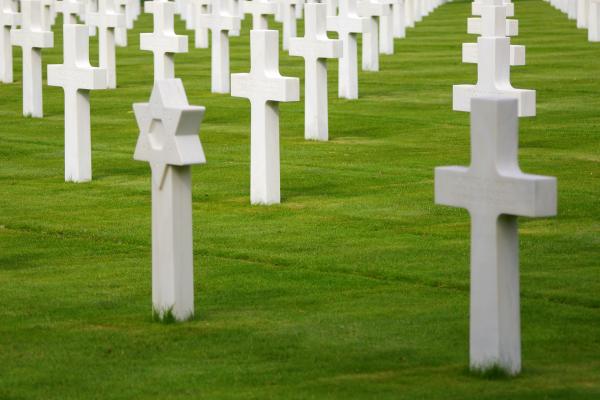As gun control debates flare on the federal and state levels, evangelical Christians are joining the discussion. Not because it’s a political issue, but because it’s a Biblical one.
“As Christ followers, we must show no commitment to a donkey or an elephant, but exclusively to the lamb,” said Rev. Samuel Rodriguez, President of the National Hispanic Christian Leadership Conference. “Gun control is not political, without a doubt.”
Gun violence, Rodriguez said, is a spiritual problem, and the solution is prophetic – or truth-telling. It’s also pro-life.
“We must champion the imago dei, the idea of the Image of God, which is that everyone is valued and every life has great worth,” he said. “It is easier to pull a trigger if you don’t recognize the image of God in the person in front of you.”
Dr. Doug Nuenke, U.S. President of The Navigators, an international, interdenominational Christian ministry, agreed that gun control is not primarily a political issue.
“Thoughtful, appropriate legislation is important, but as followers of Jesus, we realize that much legislation deals with symptoms of a broken world,” he said. “It doesn’t get to the core of brokenness. We need to figure out how to change the tone, elevate the debate [about gun control], and have less debates and more dialogue.”
For many religious leaders, however, that dialogue begins with U.S. senators.
On March 10, more than 4,000 religious leaders from all major faith groups and all 50 states joined clergy in Newtown, Conn., and signed a letter to U.S. senators, pleading for gun violence prevention legislation. Sojourners helped collect the signatures.
Rodriguez, who was recently nominated for Time’s Top 100 Most Influential People in the World, was among the signers.
“The gun control issue is overly polarized, and evangelical leaders don’t want to exacerbate a polarized country,” he said. “But evangelicals are stepping up in the gun control conversation.”
For many pastors of urban congregations, “stepping up” to end gun violence stems from a very personal place — as they have been forced to bury their own neighbors and church members. According to Rodriguez, gun violence – especially in urban areas – deeply affects interfaith leaders there, who are declaring violence-free zones and taking action.
Faith-based leaders in Philadelphia and Chicago have rallied to fight gun violence. Heeding God’s Call, based in Philadelphia, holds prayer vigils at the locations of gun homicides as well as organizes gun-store campaigns that ask gun store owners to sign a code of conduct.
In Chicago, All Saints Episcopal Church organized CROSSwalk, a walk through downtown Chicago, which drew a few thousand people the past two years. Violence on Chicago streets has killed more than 800 young people in the last six years.
Nuenke addressed breaking the chain of violence and pain that we see in every community. He quoted 2 Corinthians 1:3-4 and Isaiah 61 as examples of God’s compassion and its life-changing, healing power.
“What would happen if the body of Christ more fully was involved in living out Christ’s compassion in a broken world?” Nuenke asked. “Sometimes people who are hurt or experience violence end up hurting other people. The care and compassion they might receive from the Lord Jesus will impact them more in 20-30 years than anything else.”
For some, the call to action is more specific than compassion. Wendell Griffen, a Cooperative Baptist Fellowship pastor and Arkansas judge, discussed in a January 2013 Associated Baptist Press article his proposal to lawmakers to limit gun ownership like motor vehicles, with licensure and required insurance.
He called on religious leaders “to stand up to the forces of intolerance, fear, hate, greed and the idolatry of violence” and speak out against death and injury associated with firearms.
Other Christian leaders embraced a more grass-roots approach to ending gun violence.
Directors of American Baptist Home Mission Societies recommended 10 measures to combat gun violence during a retreat in February, including a ban on assault weapons and stronger gun dealer regulations. The directors intended the measures to arm local churches and constituent congregations to join in the “patient work of reform,” to reduce gun violence.
The issue of gun control has gained momentum among religious organizations since the mass shootings in Newtown, Conn., in December 2012.
Representatives from nearly 50 religious organizations signed a national petition as Faiths United to Prevent Gun Violence, just days after 20 children and six adults were killed at Sandy Hook Elementary School. The petition included making gun trafficking a federal crime, banning high-capacity weapons and magazines, and requiring background checks for all gun purchases.
From 50 organizations in December to more than 4,000 signatures on the open letter just three months later to this week’s Interfaith Gun Violence Prayer Vigil in Washington, D.C., people of faith are getting involved in the gun control fight.
Whether through political activism or open dialogue, Rodriguez said the church must speak with moral clarity, and “never surrender truth on an altar of political expediency.”
He urged the church of Jesus Christ to rise up.
“The evangelical church can’t stay silent on the issue of violence. It’s known for being pro-life, but that has to be from the womb to the tomb,” Rodriguez said. “Silence is not an option.”
Kirsten Lamb is a writer and editor in Denver. She blogs about faith, parenting, and natural living at naturallyconfusedmom.com.
Image: Interfaith grave markers, cofkocof, Shutterstock.com
Got something to say about what you're reading? We value your feedback!
